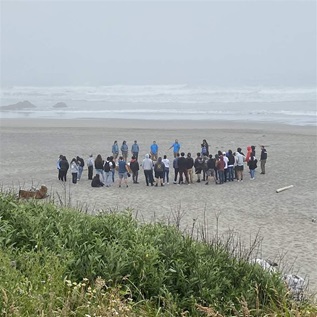Four Years Later, How Have California Elections Changed?
Sacramento, CA- California could face a crisis of voter confidence in the upcoming presidential primary when millions of voters use electronic voting machines deemed by the secretary of state to be untrustworthy without paper backup, two national organizations said today. Washington, D.C. based electionline.org, the nation's leading source for nonpartisan, nonadvocacy election news and analysis, and the New York based Century Foundation, a nonpartisan organization that conducts public policy research, said that California faces this and other challenges in the March primary and November general election.
"While the state essentially has banned paperless voting by 2006, this election will go forward on touchscreen machines," said Dan Seligson, editor of electionline.org. "Even additional security measures ordered by the secretary of state might not lead voters to trust these systems in a state that has expressed a lack of confidence in their security and integrity when used without paper."
The state also will face new requirements as part of the federal Help America Vote Act, including new rules mandating identification from first-time voters who register by mail.
"Local officials will have to ensure that only the people who have to show identification per the law are the ones asked by poll workers to do so," said Tova Wang, democracy fellow at The Century Foundation. "They also have to know the wide range of documents that are accepted as verification of identity. If they fail to follow the rules, some voters could be disenfranchised."
The organizations, which recently released "Primary Education," a guide to election administration changes in 22 key primary states, noted that California has, despite the potential for problems, moved quickly to address a number of voting issues. Prescored punch cards were scrapped after the October 2003 recall election and federal rules on voter identification and provisional voting have been instituted in time for the March 2 primary. A statewide voter registration database is expected to be completed by 2006, the deadline established by the Help America Vote Act.
electionline.org is the nation's only nonpartisan, nonadvocacy Web site providing up-to-the-minute news and analysis on election reform. electionline.org is a centralized source of data and information on reform efforts around the country. It is funded by a grant from The Pew Charitable Trusts administered by the University of Richmond.
The Century Foundation conducts public policy research and analyses of economic, social, and foreign policy issues, including inequality, retirement security, election reform, media studies, homeland security, and international affairs. The foundation produces books, reports, and other publications, convenes task forces and working groups, and operates seven informational Web sites, including the home page, www.tcf.org. With offices in New York City and Washington, D.C., The Century Foundation is nonprofit and nonpartisan and was founded in 1919 by Edward A. Filene.
Pew is no longer active in this line of work, but for more information, please visit electionline.org.






